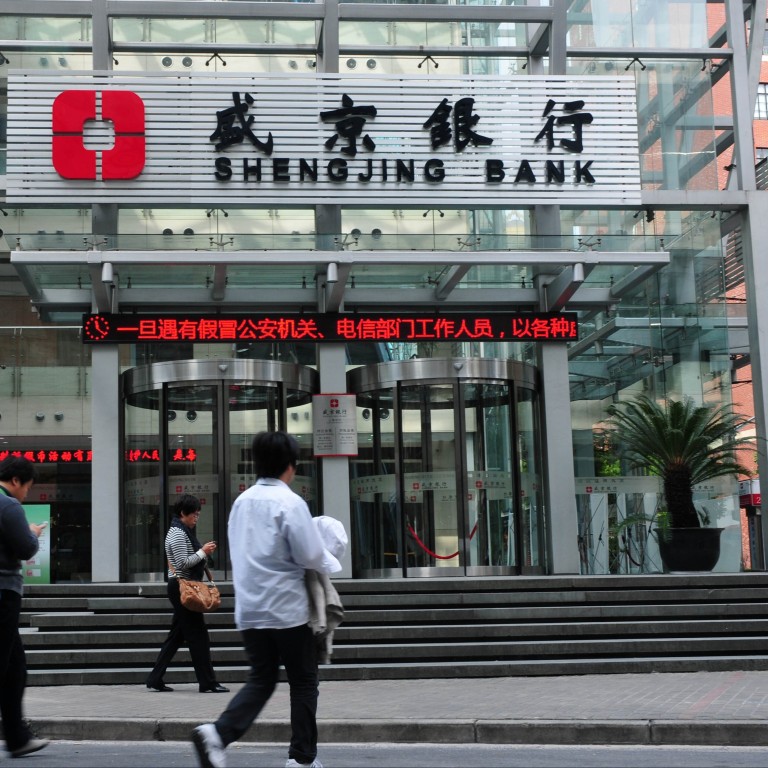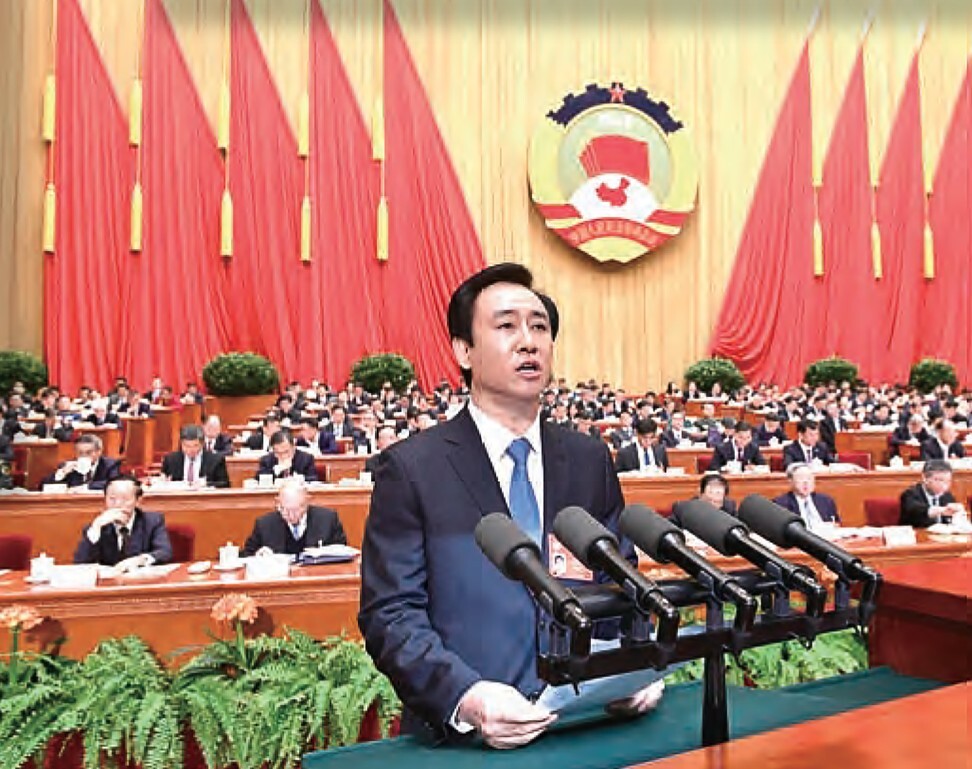
Evergrande pares Shengjing Bank stake for US$1.55 billion as distressed developer buys more time to repay bondholders
- Evergrande agreed to sell 19.93 per cent of Shengjing Bank for just under 10 billion yuan to help trim US$305 billion of liabilities
- Developer will not receive any cash from the sale, as the proceeds will be used to pay the developer’s debt owed to Shengjing Bank
China Evergrande Group is selling part of its stake in a bank in northeastern China to repay debt and unshackle itself from US$305 billion of liabilities. The distressed developer is said to have asked for more time to service a second offshore bond in as many weeks amid a cash squeeze.
The Shenzhen-based developer signed an agreement to sell 19.93 per cent of Shengjing Bank for just under 10 billion yuan (US$1.55 billion) to a state-owned enterprise Shenyang Shengjing Finance Investment Group, according to a Hong Kong exchange filing on Wednesday.
The sale will trim Evergrande’s stake in the non-public shares of the lender to 14.6 per cent, it added. Evergrande will not get any of the cash from the sale, as Shengjing Bank has demanded all the net proceeds to be used to settle the developer’s liabilities with the lender, according to the statement.
The transaction represents the latest asset sale by founder Hui Ka-yan to save his property empire from collapsing, after it missed several interest payments this month to contractors, suppliers and lenders. More deadlines are approaching on its local and offshore bond obligations.
The company has not paid the semi-annual interest on a US dollar-denominated bond maturing in March 2024 due on Wednesday as of 7pm Hong Kong time, according to a person close to some noteholders. They had expected the developer to rely on the 30-day grace to buy time and raise cash, the person told the Post.
Evergrande this summer sold off a variety of assets, including 25.17 billion yuan in property and a smaller stake in Shengjing Bank, to pay obligations its suppliers and contractors and improve its cash flow. Shares of Shengjing Bank were suspended from trading on Wednesday for the announcement.
Also on Wednesday, Fitch Ratings further slashed its long-term foreign-currency issuer rating for Evergrande and its subsidiaries deeper into the junk territory to a “C”, or five levels below investment grade. A “C” rating at Fitch reflects a company is “near default”.
“The downgrades reflect that Evergrande is likely to have missed interest payment on its senior unsecured notes and entered the consequent 30-day grace period before non-payment constitutes an event of default,” Fitch said in a statement.
It is the fourth time Fitch has downgraded the Shenzhen home builder since June 22.
“Although uncertainty still exists regarding this company’s fate, we believe the market’s base case (according to current pricing of its bonds) is likely a default,” Manulife Investment Management said in a report on Tuesday. “The nature of the potential default should then be a key driver of China’s real estate sector outlook, which should evolve over time.”
Evergrande faces four interest payment deadlines in the coming weeks on its dollar-denominated bonds, according to its recent interim reports, including a 9.5 per cent bond with US$951 million that matures in March 2024. Coupons on another three bonds with a total face amount of US$3 billion are also due next month. They typically come with a 30-day grace period.

The sale of the bank’s shares had been rumoured since July, when Shengyang vice-mayor Gao Wei encouraged local state-owned companies to increase their stakes after a meeting with bank executives and financial regulators.
Gao said at the time that the city government valued reforms in Shengjing Bank and would strengthen the Communist Party leadership in the bank to help it develop into a good bank, according to a statement released by the bank in July.
Evergrande had earlier sold a 1.9 per cent stake in Shenging Bank for 1 billion yuan as part of a series of asset sales between the end of the first half of this year and August 27.
The distressed developer earlier this month hired outside financial advisers to tackle its debt burden, after depleting its cash resources, as China began clamping down on leveraged developers to stem financial risks. The group and other industry peers have been shut out of banks after failing to comply with the “three red lines” rules imposed in August last year.
The group had 572 billion yuan of borrowings on June 30, including 394 billion yuan in bank loans and the rest in onshore and offshore bonds. Together with payables, they made up the bulk of its 1.97 trillion yuan of liabilities.


